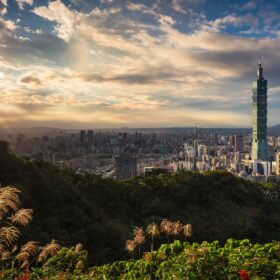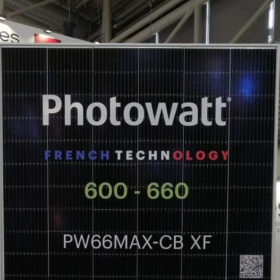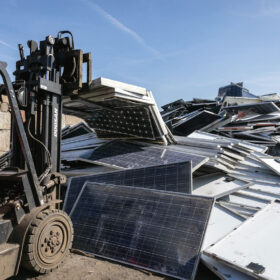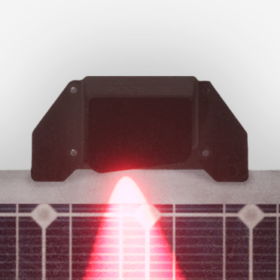Daiwa House unveils solar carport
Daiwa House, Japan’s largest homebuilder, has developed a new carport made from extruded aluminum profiles. It comes in two versions, accommodating either four or two vehicles.
Taiwan improves PPA rules for renewables
The Taiwanese government has introduced a new, favorable framework for renewable-energy power purchase agreements (PPAs). Large energy consumers are no longer required to buy the entire output of large-scale facilities.
Platio debuts new walkable solar panels
The Hungarian company said its new products can handle a load of 300 kg. The modules are available with power outputs of 23.65 W and 59.68 W and can be integrated with wood-plastic composite, wood, stone, or ceramic floorings.
Carbon acquires Photowatt
Carbon has acquired Photowatt and says it will invest €40 million ($44.6 million) to support its activities.
Computer vision for real‑time shadow detection in PV systems
Scientists have developed a novel method that uses live video feed to detect shadows on solar panels. It uses computer vision techniques, such as gamma transform and histogram matching, resulting in performance that is reportedly better than conventional techniques, especially in large arrays.
Longi, ANU develop gettering-based process to improve n-type wafer quality
The Chinese module maker and the Australian National University utilized phosphorus diffusion gettering and another defect mitigation strategy to improve the quality of n-type wafers. The proposed process contributed to improve the material quality especially towards the tail-ends.
Solar recycling’s glass ceiling
European industry association PV Cycle estimates a 10 MW solar site will eventually produce 700 tons of waste material. It is becoming increasingly clear that PV modules need end-of-life protocols – for the technology and material processing, and the regulatory environment.
Chinese PV Industry Brief: JP-Solar, Golden Solar, Longi create PV venture
Golden Solar New Energy Technology says its subsidiary, Golden Solar (Quanzhou), has started a CNY 659 million ($93.4 million) joint heterojunction (HJT) solar venture with Longi and JP-Solar Power.
Sun-X secures patent for PV sensor that measures soiling, yield loss
Germany-based Sun-X says it has patented a soiling sensor for PV modules that accurately measures dirt levels, determines yield loss, and assesses optimal cleaning times.
Italian energy supplier to reuse discarded PV modules for social projects
Italian energy producer ERG has launched an initiative to reuse discarded solar modules from revamped plants for social solar projects. The program aims to support communities, hospitals, families, and schools in Africa and Italy, using panels that are still in good condition and fully functional.









